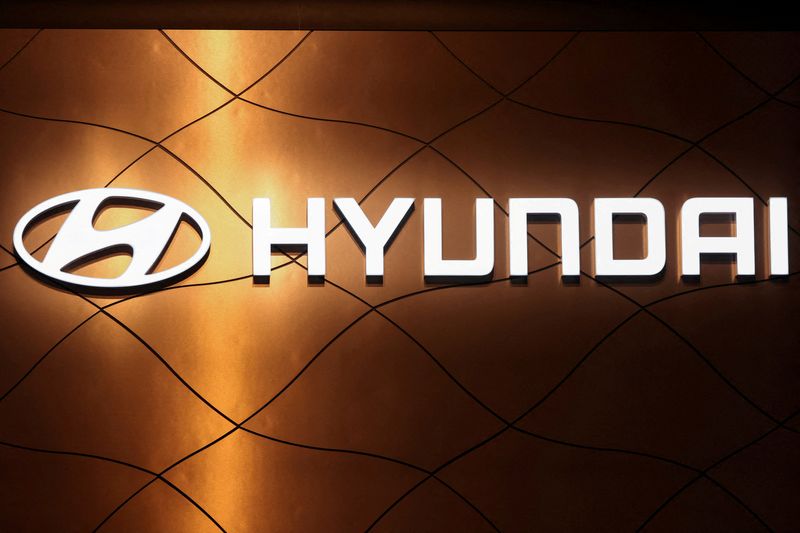By Hyunsu Yim and Heekyong Yang
SEOUL (Reuters) -Hyundai Motor will raise average annual investment in electrification by nearly two-thirds, spending $28 billion in the next decade, and further restructure its struggling China business as part of a strategy to boost electric vehicle (EV) sales.
In its annual investor day on Tuesday, the South Korean automaker, the world's No. 3 auto group by sales together with its affiliate Kia, said it also raised its EV sales target to 2 million units by 2030 from 1.87 million.
It would represent around one third of its total vehicle sales, up from 8% expected this year.
"With global EV demand growing faster than market forecasts, Hyundai Motor is raising its 2030 sales target," it said in a statement.
To meet the target, Hyundai plans to boost local production of EVs in its three key markets - the United States, Europe and South Korea - as more countries roll out incentives for locally manufactured vehicles.
In the United States, its biggest market, EV production will account for three-quarters of its total vehicle production there by 2030 from just 0.7% now.
Hyundai Motor CEO Jaehoon Chang said the automaker will consider making its vehicles more readily compatible with the charging standard Tesla (NASDAQ:TSLA) is pushing in North America.
While it raised EV sales targets in its major markets, Hyundai said it would further restructure its struggling China business to focus on profitability.
Chang told investors that China, the world's largest vehicle market, had been very profitable up until 2016 but was now the biggest risk as the automaker had lost share to domestic rivals.
Hyundai sold one China plant in 2021 and plans to sell two more, including one that it shut down last year and another that it plans to close this year. The remaining two plants will be further rationalised and used for exports to emerging markets.
Its product line-up in China will also be reduced to eight from 13, focusing on high-end and SUV models including the Genesis luxury brand.
To enhance its competitiveness in batteries and develop next-generation batteries, Hyundai plans to invest 9.5 trillion won ($7.4 billion) over the next 10 years.
Hyundai said it plans to introduce competitive lithium-iron-phosphate (LFP) batteries, a cheaper alternative to lithium ion batteries that have spurred EV adoption in China, for the first time around 2025.
Its bigger rival Toyota also announced last week a plan to start using LFP batteries.
Hyundai aims to source more than 70% of batteries through joint ventures by 2028 and beyond. Other plans include collaboration with specialised companies and startups, as well as establishing joint ventures with battery companies to ensure stable supply.
"Joint research and equity investment in startups to accelerate the development of next-generation batteries is also under way," the company said.
Hyundai said it aimed to achieve an operating profit margin of 10% or higher in the EV business by 2030.
Its investment of 35.8 trillion won ($28 billion) in electrification is part of a 109.4 trillion won budget Hyundai plans to spend through to 2032.
($1 = 1,285.2400 won)
